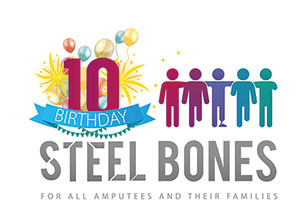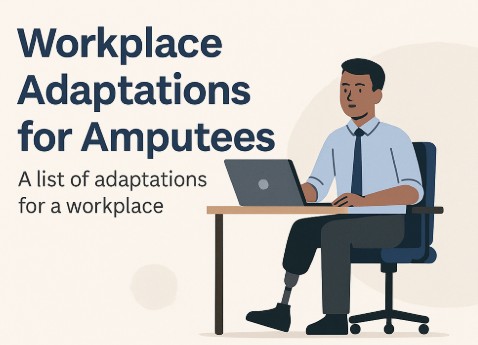Physical & Environmental Adaptations
-
Accessible Entrances & Exits
-
Ramps or level access
-
Automatic doors
-
Wider doorways for wheelchair or prosthetic users
-
-
Adapted Workstations
-
Height-adjustable desks
-
Ergonomic chairs or standing desks
-
Footrests or leg supports
-
-
Accessible Toilets and Facilities
-
Grab rails
-
Accessible cubicles and sinks
-
Non-slip flooring
-
-
Parking & Travel
-
Designated accessible parking spaces
-
Close proximity to building entrance
-
Adjusted travel routes within the building
-
Technology & Equipment Adaptations
-
Assistive Technology
-
Voice recognition software (e.g., Dragon)
-
One-handed or adaptive keyboards and mice
-
Touch-free or foot-operated controls/devices
-
-
Prosthetic-Compatible Tools
-
Adjustable or customized tools for manual tasks
-
Easier grip handles and fixtures
-
-
Remote Work Equipment
-
Secure access to work systems from home
-
High-quality headsets or webcams for virtual meetings
-
Workplace Practice & Policy Adjustments
-
Flexible Working Arrangements
-
Part-time or hybrid working
-
Phased return after surgery or rehab
-
Time off for prosthetic fittings or physio
-
-
Task Reallocation
-
Modify duties that are physically unsuitable
-
Team-based support for manual or mobility-heavy tasks
-
-
Emergency Procedures
-
Personalised evacuation plans
-
Buddy systems or designated support roles
-
Accessible refuge points
-
Supportive Culture & Communication
-
Disability Awareness Training for Staff
-
Regular Check-ins with HR or Line Manager
-
Access to Mental Health Support or Peer Mentors
-
Visible Inclusion Policies and Anti-Discrimination Measures
Funding Support: Access to Work
Employers and employees can apply for government-funded help through Access to Work, which may cover:
-
Equipment costs
-
Transport support
-
Job coaching
-
Communication support


Recent Comments